Coffee Conversations LIVE From FRSA 2025! - PODCAST TRANSCRIPT
June 10, 2025 at 10:00 a.m.Editor's note: The following is the transcript of a live interview with Anissa Westfall of Westfall Roofing and Tracey Donels of Service First Solutions. You can read the interview below, listen to the podcast or watch the recording.
Intro: Hello and welcome to Coffee Conversations from the Coffee Shop. We are at the Florida Roofing Show in Kissimmee, Florida. My name is Heidi Ellsworth and we're here to find out what is happening in Florida.
As you know, these live Coffee Conversations, we bring the best of the best, our panelists, to come and talk about what's happening, what are the challenges, what are the opportunities, because as we all know in roofing, what starts in Florida and California tends to move inside the States overall, so we want to hear what's happening.
So, this will be on demand, as you all know and it will be available within 24 to 48 hours on our site. If you chat, chat it up YouTube, chat it up wherever you're watching right now and let us know, we'll get some of that information back to you. So, let's get started. Hello everybody.
Anissa Westfall: Hello.
Tracey Donels: Hello.
Heidi Ellsworth: Okay, we're going to start with some introductions. If you could tell us your name and then also your company. Tell us a little bit about your company, what you do.
Anissa Westfall: Hi, my name is Anissa Westfall. I am with Westfall Roofing. We are a residential contractor in Tampa, Florida. We also have branches in Orlando, Bradenton and North Fort. I'm the chief marketing officer, I've been in the marketing space for over 20 years in corporate America and then-
Heidi Ellsworth: Love it.
Anissa Westfall: ... then had a baby during the pandemic and came to work in this beautiful industry, roofing. So, here I am.
Heidi Ellsworth: I tell you what, once you're in roofing, you never leave, right? That's kind of the truth here.
Anissa Westfall: It's definitely a need, not a luxury, so that's good for us.
Heidi Ellsworth: And it's a fun industry to be involved in. Thank you.
Anissa Westfall: It's fun, you're welcome.
Heidi Ellsworth: Thank you for being here today. This is really great. I'm excited. Tracey.
Tracey Donels: Hello.
Heidi Ellsworth: Hello.
Tracey Donels: My name is Tracey Donels. I'm with Service First Solutions. We are a training [inaudible 00:01:55] consultant company. We help roofing contractors grow their repair [inaudible 00:01:59].
[inaudible 00:01:58] so much and you do a lot of work in Florida.
Tracey Donels: We do a lot of work in Florida. There's a lot of repair and maintenance, there's a lot of rain in Florida, so there's a lot of customers that start small ended to be very big customers who have very big problems that spend very big dollars behind it.
Heidi Ellsworth: In fact, you're sitting next to one, which we'll get to real soon, but I'm telling you, some of the best service and maintenance managers are here in Florida. You see them at all the shows, we see them at some of the top things. So yeah, this is a hot spot. So, speaking of which, Michael, can you introduce yourself?
Michael Black: Yeah, good afternoon everyone. My name is Michael Black. I'm the Vice President of Service and Maintenance for Sutter Roofing Company. We are a commercial roofing contractor, family-owned, fifth generation here in Florida and West Virginia. And my basic duty is that I run the service department throughout the State of Florida and lower Georgia.
Heidi Ellsworth: That's great. Everyone knows Sutter Roofing, there you go. And Johnny, I'm always so excited to have you on the panel, please introduce yourself and talk about your company.
Johnny Walker: Thanks, Heidi. My name is Johnny Walker. I'm the National Technical Manager for Roofing Waterproofing for ICP. ICP is Innovative Chemical Products, but I really work for the APOC side of it, which is our commercial roofing and waterproofing products line.
I've been with their company going on 16 years and roofing for about 40, so a long career in roofing. But we're a manufacturer of roof coatings, roof cements, underlayments, adhesives, foam adhesives, foam insulation, the list goes on and on with the ICP family. But even just in that roofing and waterproofing, just such a wide line. And one of our corporate offices is right here in Tampa and I've been in the Florida market now for the last 21 years.
Heidi Ellsworth: That's amazing. And we have to say APOC and ICP is a sponsor of our CoatingsCoffeeShop.
Johnny Walker: Yes. Yeah, yeah, yeah.
Heidi Ellsworth: It's two years ago right now that we launched it here with you.
Johnny Walker: Wow, yeah.
Heidi Ellsworth: Yeah.
Johnny Walker: Time flies, yeah.
Heidi Ellsworth: I know, time does fly, it's crazy. So I'm really excited to hear what you guys are experiencing and what you're thinking. So, Anissa, I would love to start with you just on some of the challenges that you're seeing right now for roofing contractors in Florida.
Anissa Westfall: Well, construction is definitely being hit hard by immigration right now, we're seeing that firsthand, very real time. And then of course the laborers that are staying are charging more per square, right? I think the New York Times predicted a 20% increase in construction labor. And then to top that off, we are experiencing material increases as well. So, we're kind of getting a double whammy right now with labor and materials, but particularly labor at the moment. Yeah.
Heidi Ellsworth: Well and it seems like a lot of this is hitting and we're not going to get into politics, this is no place to get into politics, so I'm not going to go there, but I am going to say a little bit self-inflicted.
Anissa Westfall: A hundred percent.
Heidi Ellsworth: So, that's kind of, for contractors, that's a little frustrating.
Anissa Westfall: Yes.
Heidi Ellsworth: So, as we start looking at this, I think it really shows how important this advocacy is and us being involved in some of these decisions, because the roofing and construction industries are getting hit and really we need to be speaking our minds on this.
Anissa Westfall: Yeah, it's going to hit the consumer at the end of the day. They're going to be paying 20, 30, 40% more for the same roof we put on two years ago.
Heidi Ellsworth: Right.
Anissa Westfall: Some of my guys are scared to go to certain jobs and being on the road and it's a big, big deal, a big deal right now.
Heidi Ellsworth: And when you add, I just want to bring this in, because I think it goes with what you're talking about, what is going to be really affecting the consumers, the people who are buying roofs, is insurance. So, when you add what's going on with insurance companies, that really puts a lot of homeowners into a tough situation.
Anissa Westfall: Yeah. We actually in Florida had a little bit of the leg up across the nation with the insurance thing. So, I'd say about three or four years ago, insurance companies were canceling customers left and right, if your roof wasn't 15 years old or older. There was a couple of legislations that passed in 2023, I think, that eased that consumer pain a little bit, where they allotted some repairing and things like that rather than straight replacement.
So, we have seen that in Florida calm down a little bit. We noticed that in the business. But then we are faced with hurricanes here in Florida, so last year two direct to Tampa, Bradenton area, which is where we are at. So, that adds a whole other layer of fun in Florida.
Heidi Ellsworth: It really does and we're starting hurricane season again and they're predicting a very active season, so we're always thinking of you guys.
Anissa Westfall: Yeah.
Heidi Ellsworth: And Tracey, what are you seeing with your customers and just overall in Florida some of the challenges for, especially on the commercial side?
Tracey Donels: I really see it, like Anissa said, it's in the labor market, it's in the training. I find a lot of contractors still aren't necessarily competing for jobs, they're competing for labor. And if they can find the labor, they'll find it. To Anissa's point, people are not [inaudible 00:07:20] people are going to be waiting.
Anissa Westfall: Waiting.
Tracey Donels: And when you're waiting, that makes it a lot [inaudible 00:07:25] to sell versus [inaudible 00:07:27]. So, those contractors that can go out and find laborers or workers from other trades, [inaudible 00:07:33].
Heidi Ellsworth: Right.
Tracey Donels: We've seen a lot of contractors simply taking the word roofing out of the job posts.
Heidi Ellsworth: Really? Interesting.
Tracey Donels: Especially because I come from the commercial market. We have a lot of commercial roofers who won't step foot on a residential roof and there are a lot of owners who are afraid of heights [inaudible 00:07:55] commercial roofing [inaudible 00:07:56].
And when we don't know roofing and we see the word roof in a job description, we think, "Oh, well, I don't want to [inaudible 00:08:03], so I'm not going to call them." And it's almost a portion where if we want change, we need to see action. [inaudible 00:08:12] and we need to sell the future roofer on roofing just as hard as we're selling customers on why they [inaudible 00:08:20] with us [inaudible 00:08:21]-
Anissa Westfall: Yeah, that backlog, we're typically four to six weeks out. If I might have to lay off half of my labor in the next week or so, guess what happens to that timeline? You go from four to six weeks, to eight weeks and then you start losing that business, because people aren't going to wait that long. And we're on this cusp of, "Oh man, things can really potentially go south." So, I'm really hoping that something change, something that happens, please. I mean, yeah.
Heidi Ellsworth: Let the voices rise.
Anissa Westfall: Yes, exactly.
Heidi Ellsworth: Let them hear what's going on. Michael, are you seeing the same thing?
Michael Black: It's definitely labor, especially skilled labor. It's hard to get somebody to come into this industry now. Everybody's getting older, the generations are getting older. We're losing a lot of the true roofers, like I like to call them, guys [inaudible 00:09:05] their whole life, guys that [inaudible 00:09:05] roofing, they're getting older, they're getting out of the industry and it's hard to bring the young people back in. It's very tough, especially here in Florida. It's very tough, very union.
And that's our biggest problem is just trying to, when we hire somebody or [inaudible 00:09:25] a lot of training, a lot of onboarding, a lot of training. It's not that skilled roofer out there anymore that just walks in says, "Hey, I can do whatever you want."
Heidi Ellsworth: Yeah. And there's no trade school, right?
Michael Black: Nope [inaudible 00:09:35].
Heidi Ellsworth: There's no trade school like HVAC and electricity, whatever.
Michael Black: There's no cross-training. Now you've got TPO, guys just do TPO. They don't know what [inaudible 00:09:45] they haven't touched a kettle, they don't know how to [inaudible 00:09:46]. You got guys that torch that don't know how to weld TPO. Back in the day you did everything, a roofer did everything across the board and now it's a single trade.
Heidi Ellsworth: Specialized.
Michael Black: So, we're seeing that as a big problem... Labor's a big problem. Second problem, I would say for us in the commercial world, is because of the storms and the hurricanes, the regulations and insurance is going crazy. Previous years when you had hurricanes and your roof blew off, it was, "Okay, it was a storm, the roof blew off."
Not no more, after three storms last year it's, "Oh, it's the roofer's fault, it's the wrong installation or the wrong spec done." The insurance companies are doing anything they can not to help you out with people who unfortunately have a blow-off due to a storm.
Heidi Ellsworth: Right.
Michael Black: A lot of specifications have changed and a lot of roofs blew off and failed that, now we're going through upcoming code changes and all kinds of stuff here in Florida, that's really going to affect [inaudible 00:10:36]. So, that's something that we're just getting to now, [inaudible 00:10:39] seven, eight months after [inaudible 00:10:40].
Heidi Ellsworth: Yeah. We keep hearing about this, we keep hearing about how insurance is different on steep compared to low slope and it's still hitting all sides as it's going through.
Michael Black: Yeah. Tightening all the screws.
Heidi Ellsworth: Tightening all the screws.
Anissa Westfall: You know who believes in climate change? The insurance companies, that's who believes in it.
Michael Black: Yeah, there's no, whether it's commercial, residential, it doesn't matter, the insurance companies are taking... Actually, I feel taking advantage of the situation and they're just making it so difficult to help out your customer when it comes to they're having insurance [inaudible 00:11:16].
Heidi Ellsworth: Right.
Anissa Westfall: Yeah, well, I think with storms coming so frequently and much stronger these days, the insurance companies are... A lot of them are leaving the State of Florida, right? Because it's not profitable for them. Citizens is our backup insurance company and even they're having issues. So, that whole homeowner insurance industry is-
Tracey Donels: Just like the program in California, the [inaudible 00:11:40] insurance program in California. [inaudible 00:11:44].
Anissa Westfall: Right, right.
Heidi Ellsworth: Well and to all of your point, if you think about the perfect storm and I'm not saying that as a pun, I'm just saying when you have roofs with all the regulations, insurance companies are denying stuff, so then they get put off on getting fixed or repaired. You also don't have enough labor to get up there to repair them.
Anissa Westfall: [inaudible 00:12:07]. Yep.
Heidi Ellsworth: Then you're going to have more damage internally, because water and everything-
Anissa Westfall: Yep, it's going to cost more.
Heidi Ellsworth: ... and mold, which is big here in Florida. So yeah, it's kind of all feeding each other really as we're going along. I know on the coding side, Johnny, that there's been... The RCMA has been really involved on really trying to work in Florida. I think they have some advocacy at the Jacksonville.
Johnny Walker: So, when we talk about the insurance companies, one of the things that affects us is the restoration of commercial roof. That's a huge business for us. And just at the same time they were making you replace a 15-year-old roof that was a perfect [inaudible 00:12:49] they're selling commercial owners, "Hey no, you can't restore it, you have to tear it off."
Heidi Ellsworth: Really?
Johnny Walker: So, we face the same thing and we're still seeing some of that. Now, depending on the insurance company we're able to work with a little bit and we're actually seeing more and more building owners that are somewhat self-insured, because it's becoming next to impossible to get insurance.
Anissa Westfall: To get it and it's not helpful.
Johnny Walker: During the last hurricane, we had a warranty claim that they literally had a $500,000 deductible. So, they needed a new roof, but they're like, "Hey, can we band-aid it?"
Anissa Westfall: That's a great point because in the State of Florida, even with homeowners, usually there's a hurricane deductible.
Johnny Walker: Correct.
Anissa Westfall: There's a typical deductible and a hurricane deductible. It's somewhere around 10,000 sometimes.
Johnny Walker: Unless they had sustained major building damage, it wasn't enough. So, they just had to eat that. So they're looking at what they're paying these insurance companies, looking at these massive deductibles and going, "Well, why don't we just put that money in an account."
Anissa Westfall: Exactly.
Johnny Walker: [inaudible 00:13:49] something that really is going to accrue money and just leave it in there for the what if. So, we're starting to see some of that.
To your guys' point about labor, this [inaudible 00:13:59] before the immigration law and we're starting to see that hurt some, we've been talking about the labor shortage in Florida for a decade.
Anissa Westfall: Exactly, yeah.
Johnny Walker: And the training and there's a couple that have tried to get trade schools going and nationally or societally we try to push into higher education, but we got away from the trade school side of it and construction trade. And that's really hurting, not just our industry, but every construction trade industry. It's a widespread problem.
Anissa Westfall: It's a great point, right? It's like the whole industry leaves it up to the contractors to train this next generation of technicians. There's no standardized way other than code, right? It's pretty wild. It literally is kind of the wild wild west still in the industry.
Heidi Ellsworth: It really is. And we're seeing initiatives like pro-certification from NRCA, they have some training, we're seeing some of these things starting, but I don't think they're going fast enough, to your point, to be able to [inaudible 00:15:05]-
Anissa Westfall: Or scaling out geographically.
Heidi Ellsworth: What are you, kind of to that point with the... And you said there's no vocational schools?
Anissa Westfall: No.
Heidi Ellsworth: Are you hearing of anything in Florida where they're trying to... Because I know last year they had a couple, Tim with Architectural Metals, I think, he had a couple kids who participated in SkillsUSA from Florida. One of them was a winner. And so, are you getting your companies involved with some of the local schools or with the SkillsUSA or is there anything actually at this point?
Michael Black: We haven't. We've been trying to find [inaudible 00:15:46] program that actually works. There's programs out there, but it's kind of defining the area of Florida that that program's in. So, I know in Miami there's a apprentice training program, but I really can't see the guys out of Tampa or Sarasota or Miami are being training as much as [inaudible 00:16:02]. So it's very few and sporadic and we're heavily looking into it, but there hasn't been that one program that works for everybody.
The pro-certification from NRCA is good, they have actually a service program now that it gets certified [inaudible 00:16:17] service. We're doing that. We got a foreman on the production side [inaudible 00:16:21] getting done [inaudible 00:16:22] and that's a really good training. But again, it's something that's not local, not sporadic. It's something not available to everybody. That's something that should be worked on by FRSA and other organizations to get some kind of apprentice [inaudible 00:16:37] going.
Tracey Donels: I found it working on the markets, excuse me, it's taken someone to step up and say, "Hey, I'm going to be the leader, the mentor, the person who's going to run this program in my area." I know in the Dallas, Fort Worth area, KPost, who I used to work at, went to the Construction Foundation of America and worked a local program out and again, it's got to be local until [inaudible 00:17:01]-
Anissa Westfall: Scale, yeah, right.
Tracey Donels: [inaudible 00:17:01] it can be actionable.
Heidi Ellsworth: And that was the ABC?
Tracey Donels: Yeah.
Heidi Ellsworth: Yeah. Builders and Contractors.
Tracey Donels: Right, so there are the programs out there, but it very well may take, "Hey, I want to create this program and it's going to take a little sweat [inaudible 00:17:16]." Go after your future employees as hard as you go after future sale, you work that hard.
Heidi Ellsworth: Yeah. I think actually Rob [inaudible 00:17:25], hopefully I said that right, was working with KPost, he's from Florida working with KPost on the ABC training. But again, it only goes so far. And then everybody, then it kind of... Those companies are using it, but we're not getting the word out to get everybody doing it, which is our job. Right?
Anissa Westfall: I try to get it out. I feel like if there was a community college program that could be replicated throughout the States, connecting with that more of an educational, like an actual curriculum, an actual certification, an actual thing you can go get an AA in or something, whatever. Right?
Heidi Ellsworth: And we're seeing that on the construction management side.
Anissa Westfall: Yes.
Heidi Ellsworth: We're doing the roofing, but we are seeing that in the skill [inaudible 00:18:08]-
Anissa Westfall: Correct. Correct.
Heidi Ellsworth: ... on the ground. Right?
Anissa Westfall: Yeah. Everybody wants to run a business but not actually do the work.
Heidi Ellsworth: Yeah. Exactly. Yeah. And so, I tell you it's a lot. Well, as we're talking about that labor shortage, but I also want to talk a little bit, I want to go back to where you started and get some different perspectives here on inflation, on what's going on between the tariffs, between the materials, we've heard that there's going to be possibly some material shortages looking later in the year into next year.
Right now it's the word that we all hate right now, uncertainty, that is out there. But let's start down here with you, Johnny.
Johnny Walker: Sure.
Heidi Ellsworth: What are you, from a manufacturer's standpoint, what are we looking at?
Johnny Walker: So, the moment we heard the word tariff we started looking at who are we talking about? What are the levels that we're talking about? What countries are going to be affected the most?
For example, China. Looking at what raw material might we buy from them? And if India's going to be left out of it, then maybe we look at India options or other types of things like that. So, we did that immediately. Just like with all the manufacturers out there, you started, kind of a nervousness started, you start to see prices starting to rise and it's like we haven't received anything quite yet, you know what I mean? But you already saw that nervousness, everybody jumping on board.
So, as far as supply chain, we haven't had an issue yet, because we were fairly well diversified and saying, "Hey..." Having multiple people, we can get this particular resin or titanium dioxide from. So, our purchasing team was already primed and ready for that. And the reason they were is because we went through this a little while ago-
Heidi Ellsworth: Yes, [inaudible 00:20:00].
Johnny Walker: ... the shortages, right? So, we had to make those relationships. Well, we maintained them. Did we go back to some of the original? Absolutely, for price and quality issues. But we did that. So for us it's been, I don't want to say painless, but we've seen some increases in pricing, so we've had to carry them on, which that goes on to distribution. And then from distribution goes on to our roofing contractors and to your point you're seeing the cost of labor going up and the cost of pricing going up. And as I said, there's no increase anywhere in that chain that doesn't affect the end user.
Anissa Westfall: Yeah, so true.
Heidi Ellsworth: So, true. And as you're really looking at that, Michael, roof restorations, your overall, what are you hearing?
Michael Black: So, again, like he mentioned, we learned a lot through COVID and the material shortage. So, like he said, we kept that. We looked at a distributor manufacturer as a strategic partner, we kept that relationship, but we just didn't dump them after [inaudible 00:21:02] we kept it up them. We tried to be proactive.
The pricing went up the last couple months, it's kind of leveling off, but now you're hearing an uncertainty about material shortage. So, if you have a strategic partner you're working with, we know we have certain jobs coming up with [inaudible 00:21:16] jobs, we can buy ahead of time and get the pricing locked in, but you have to develop a relationship. It has to be a team effort.
You just can't be... I don't care how big of a roofing contractor you are, you have to have a relationship to make everything work and fall in place, because there's so many uncertainties out there. So, we develop relationships, strategic partners, we work with them, we keep our estimators and everybody know, "Hey, the price is going up in a couple weeks." [inaudible 00:21:42], let the customers know ahead of time, just clear, "Hey, there may be some price increases." So kind of a selling point sometimes too [inaudible 00:21:48] get them going quicker, but that's always [inaudible 00:21:50]-
Heidi Ellsworth: We were talking to just somebody yesterday about that and she said the exact same thing. She was like, "They want us to hold. And we're like, 'We can't hold. Do you want it? Do it now?'"
Michael Black: But you have to be honest. You can't make promises, you have to do what you say you do in this industry. That's how we address it. You build a relationship, work with your partners and then just be honest with your customers.
Heidi Ellsworth: Yeah.
Anissa Westfall: That is so true.
Tracey Donels: You have to communicate, right? If you communicate, if you do the research, you can be better prepared [inaudible 00:22:19] what situation your business is [inaudible 00:22:20] better prepared.
So, you have to have the [inaudible 00:22:25] relationships, you [inaudible 00:22:24] you have to be honest. One of the things I often bring up in my training to prepare maintenance departments is about communication. Because no one likes a surprise, no one likes a bad surprise.
Anissa Westfall: Especially if it costs me money.
Tracey Donels: If it's going to be bad, get to the customer, communicate that ASAP, put it in the best way possible. Not by email, by phone or in person. But if you communicate with your customers ahead of time and I do believe that everybody's favorite roofing lawyer, Trent Cotney, has a clause that you could put into your estimates for the tariffs and stuff like that. Communicate, be upfront.
Heidi Ellsworth: Yeah. We have a whole Coffee Conversations with Trent talking about that alone. And he's giving, here's the thing, he's sharing those clauses, he's sharing those contract conditions free. He's just like, "As the industry here, you need this."
Tracey Donels: Yeah, ask questions, ask your distributors. Look what Larry said. Larry knows about it, right? He's going to know more than your average roofer or person. Ask the people who know, go to the experts.
Anissa Westfall: Exactly.
Heidi Ellsworth: What are you seeing on the residential side?
Anissa Westfall: Yeah, just to piggyback what Mike was talking about was we lived through COVID as well, right? So, I remember I shifted marketing strategy to sell on colors. Because of our partnerships with our distributors, we were able to maintain a lot of the color selection, whereas GF was eliminating their colors and we were still with OC. So, I had to shift my marketing strategy to go there.
So, I guess what's the most frustrating part, you're purchasing, people are now looking up tariffs and it's like business is hard alone and everybody's busy. We're doing stuff and now here comes this just huge detour where everybody has to refocus and reshift on something else. It's just a distraction, it's just not very pro-business in my opinion. You know?
Heidi Ellsworth: Yes, I really agree too. And one of the things that I'm thinking about is what... And I love it what you're saying from a marketing standpoint, because one of the things that I think contractors have had to do is really to figure out how to shift quickly.
Anissa Westfall: Yes.
Heidi Ellsworth: So, if you're looking at different products, this one might be rising, where this one is a little bit more stable, but maybe it's not something that you've actually installed before. Now you need to get the training, now you need to bring it in and figure out... What are you seeing product-wise, especially around the Florida context, when you're talking about obviously some of the strictest codes in the country and then also with hurricanes, what are you doing product-wise to do things different or look at things different?
And what products do you see maybe rising that maybe weren't so popular before?
Anissa Westfall: Well, I know at the state level here in Florida, there have been a lot of chatter about asphalt shingle and whether or not it can hold up these storms and all this thing. I know FRSA is trying to come back to say no, if it's installed correctly, if you adhere to the manufacturers, it's a great roof, especially after peel and stick in 2010.
But they're starting to turn their attention more to metal. And look, we worked Hurricane Ian and down in Southwest Florida in 2021, '22. And I remember my husband would say roof was gone, gone, gone, metal held up, gone, gone, gone, metal held up. So, we witnessed it firsthand after a cat 4 storm, metal was vastly superior, but it's also four times the cost.
So, just think about what is that long-term solution, right? I think about some of my family's from Puerto Rico, you don't have shingle roofs in Puerto Rico. It's concrete roofs. It's flat concrete roofs. So, it's like unless we start thinking like Florida, we're going to take 50 million people and start transitioning to them like a Caribbean island? How? It's just not scalable. So, there's chatter, but it's at the end of the day shingle for residential is the best value and if it's done correctly, it's a good roof.
Heidi Ellsworth: That's what I was going to say, we know that there are shingles out there that have passed Dade County that are good roofs when installed correctly, that work really well. But I love what you said, you just really tapped me as like, do we need to start thinking different? When you think about the Caribbean Islands with climate change-
Anissa Westfall: Correct.
Heidi Ellsworth: ... and the insurance companies believing in climate change.
Anissa Westfall: Yes.
Heidi Ellsworth: Do we need to start building different? And I think that is really something from a roofing-
Johnny Walker: We're starting to see some of that.
Heidi Ellsworth: You are.
Johnny Walker: When you look at residential construction going from 1530 seconds to 1930 seconds and Miami-Dade with wind uplift codes and nail fasteners and all the new pressures that they're designing to. So, I think with the metal, absolutely, we saw the same thing going through there. Held up. Held up. Didn't. But the other thing I saw was the newer subdivisions, where even the residential shingles held up better.
So, the newer code is better, even with the shingles. Absolutely I think metal, if you're in a high velocity hazard zone, that might be the way to go. And I think if it does go that way, it'll probably be in only those zones and it'll be new construction code, not necessarily re-roof code.
Anissa Westfall: Yeah. But that'll take decades to get there.
Johnny Walker: Exactly, not going to happen overnight.
Anissa Westfall: No.
Heidi Ellsworth: And on the commercial side, do you see things changing as in how they're building the buildings to combat-
Michael Black: Yeah, definitely. Especially after [inaudible 00:28:09] storms, like I said, there's a lot of [inaudible 00:28:12] and in my opinion, I don't think they failed because of the roofs. The most blow-offs I've seen that failed is because the AC unit blew off or the vent blew off and once it blew off and opened up the roof, that was the fail point. But still to an insurance company, they're like, "Your roof wasn't installed right."
So we are seeing, working with consultants [inaudible 00:28:30] seeing stronger specifications, higher uplift pressures that we have to meet now that they're speccing out for the private industry, so we are seeing that change slowly come in because they don't want to do this again.
If another hurricane comes through, they want to have rock solid documentation, this is what was specced, this is what was installed and so they don't have to deal it with it going through right now.
Heidi Ellsworth: Yeah, we're hearing too a lot more about anchors. Anchor products or anchors on the roof, to anchor down everything, that it's not as it was before. So, are you seeing that too changing?
Michael Black: Yeah, with a lot... With the industrial companies that we work with, like the Cokes and the Pepsis, they have straps on everything. Anything on that roof is anchored to the roof somewhere with a cable or strap, because they already know what to expect when a storm comes. They want to limit [inaudible 00:29:19] so we do see a lot of anchoring products going on for the industrial side.
The private sector just doesn't invest money into it, because property managers they're just here to manage the property, they're not looking at it for 20 years.
Heidi Ellsworth: They're following code.
Michael Black: Yeah. So, you see the hospital, the medical industries, the food process industries, they really put a lot of effort into the roof for safety and strap downs, but your standard property manager grocery store, they just want something to keep the water.
Heidi Ellsworth: It's interesting when you really think about how much more is on the roof today, right? Solar, water heater, telecommunications, I don't know.
Anissa Westfall: There's satellites.
Heidi Ellsworth: Satellite.
Michael Black: Yeah, we just did a job for a client, we had to go install Starlinks on 131 buildings.
Anissa Westfall: Oh wow. Holy cow.
Michael Black: Each building needed a Starlink installed, that's just another penetration on the roof.
Anissa Westfall: Right.
Heidi Ellsworth: Yeah and are you seeing that on... Because you have a combination of steep and low?
Anissa Westfall: Yes.
Heidi Ellsworth: You have a lot of low pitch too, don't you?
Anissa Westfall: Not as much.
Heidi Ellsworth: Not as much, yeah.
Anissa Westfall: Mostly steep. There's a lot of just residential homes that have low and steep, so sometimes we'll just tie in.
Heidi Ellsworth: When you think about Starlink, you think about the satellite dishes, you think about the water, now there's the solar, pushing solar all the time. It is changing that perspective. And when a storm hits, it's really not about the roof coming up, it's about those things coming up-
Anissa Westfall: Penetrations. Yeah.
Heidi Ellsworth: ... and hurting people and then water getting in.
Anissa Westfall: Yeah, I see solar panels on shingles and I cringe every time, what are you doing? Don't do that.
Tracey Donels: I think one of the things you'll see too, to Michael's point, of learning the lessons from the storms and changing how we do things, unfortunately with the insurances I think you're going to see where the insurance companies are going to not only want to see your roof under warranty, I know I've seen that in California where they're just canceling policies, because... The roof might be perfectly okay with the warranty, but I think the next thing that's going to come is some kind of inspection or preventive maintenance plan.
"Prove to us that you're maintaining this asset that we are having to insure." And I think to that point, I could see a lot of these things eventually getting across the country, when the money, when people realize it's just not a nuisance, but now the data has shown me that I'm losing money or it's costing me money. And then you're going to see that, I think it's going to become even more-
Michael Black: I do have to say, this year I've seen our request for inspections and inspection reports tripled. And I like to think it's because of my sales [inaudible 00:31:44] that I get from people, but I see it's the norm. It's the insurance company demanding, "I want a report on your roof lining." But that's one of the [inaudible 00:31:54], even for homeowners, homeowners wanting to get their wind mitigation reports done. We don't do those as a commercial contractor, but people call us every day and say, "Hey, I got a house, I need a wind mitigation report and inspection."
Anissa Westfall: We include wind mits in all of our placements [inaudible 00:32:07]-
Michael Black: People want and having to get their inspections done has, I've seen, increased about 60% over last year before the storms. I believe it's just because people are trying to document, be more preventative for the next storm.
Heidi Ellsworth: Do you see that... I agree, I think that's a great point on commercial, do you see it on residential too? Because we keep hearing about residential contractors starting to look at service and maintenance for the residential. And it would seem like if any place here in Florida, that's probably something that's going to be happening.
It's something we've been talking about for years, especially on the tile front. Tile is a no-brainer, right? But we just haven't pulled the trigger, but it's got to come.
Tracey Donels: And I think you see it in certain markets where you're in a market where we don't replace roofs as often as we do, let's say, in a Florida or a Texas or [inaudible 00:32:57]. All right? I come from Iowa, the Northeast, the Northwest, where you see more repair and maintenance, because that shingle roof's going to be there for 25, 30 years. And as we become more diversified [inaudible 00:33:13] our jobs and our roles and our lives, how many more people are there today that just aren't going to put a ladder up on their roof to clean out their gutters? And right there, that's-
Heidi Ellsworth: They're more than happy to hire somebody to do that.
Tracey Donels: ... that's home repair and maintenance for your service department right now for residential. And I think we find more and more of those where it's just like, "Well, I'll have somebody to do that for me." And nothing against that, that's fine-
Anissa Westfall: Well, let's not forget that the average age of a homeowner is 54, so young people are not buying homes. They can't afford it. So, that consumer base is already an aging population, so you got to think about what their capabilities are, right?
Heidi Ellsworth: Yeah. I'm not going to clean out my gutters, sorry, just no.
Tracey Donels: There you go.
Heidi Ellsworth: No and I think that is changing. One of the things that I'm thinking about too is as you look at Florida and what you all are dealing with, insurance, legislation, labor, which again, yeah, you can start a service and maintenance department, are you going to have the labor, the technicians? But how do you see... Johnny, I'm going to start with you again, because I know you have a view of the entire country. How do you see Florida policies, regulations, insurance stuff? How do you see that going across country?
Johnny Walker: Both fortunately and unfortunately. There's some really good things that we do here because of all the storms, we've learned a lot. And it is starting to branch. When we market, for example, we say, "Hey, we're Miami-Dade, we're all these things." We lead with that, because that has, everybody knows, hey, if you meet that-
Heidi Ellsworth: Right, then-
Johnny Walker: Then you're good.
Heidi Ellsworth: Yeah.
Johnny Walker: Because they know Florida codes are so strict. So, it is absolutely expanding throughout the country. Where it's going to go, obviously the coastline's first. California seems to jump right on board with pretty much anything that Florida's doing. And even right now we're starting to see Florida jumping on board with what's going on in California, with the fire codes and fire [inaudible 00:35:26]-
Heidi Ellsworth: They seem to influence each other.
Anissa Westfall: Yeah and then Europe influences Cali.
Heidi Ellsworth: Yeah and then [inaudible 00:35:31].
Anissa Westfall: So, it starts there.
Heidi Ellsworth: Yeah.
Johnny Walker: And that's not necessarily a bad thing. Learning from what's going on there and what didn't work and what we're-
Tracey Donels: And right in the middle of the country, I'm not going to lie, It's hitting the hail zone too.
Johnny Walker: Yeah, the hail zone- Tornado alley.
Tracey Donels: My deductible went from 1 to 3% and now if I try to even shop around for homeowners insurance, they're like, "Oh, you had a hail plane two years ago, so-"
No thanks.
Tracey Donels: "... no."
Heidi Ellsworth: Yeah. That's it.
Tracey Donels: How about that?
Heidi Ellsworth: That's it. Living in the mountains of Oregon with fires everywhere around us, I'm just holding my breath. Right now I called the insurance agent, "Are we good? She's like, yeah, you're good, don't just hide."
Anissa Westfall: Don't call me again.
Tracey Donels: Until we rezone something [inaudible 00:36:19] different zone.
Heidi Ellsworth: I know and it could change as we're going through it. Well, I want to flip back a little bit to immigration.
Anissa Westfall: The hot topic.
Heidi Ellsworth: We had a great Coffee Conversations again with Trent Cotney on really how to deal with ICE and ICE raids and working with your employees. But you started us out on this and so I would like to go a little bit deeper on just how you as a company are dealing with this and have you had instill different changes, obviously it's affecting your culture, there's just no question it's going to do that. But talk to us a little bit about really the immigration and are you getting involved on a state level?
Anissa Westfall: Yeah, we're right in the middle of this, just happened a few days ago. But we did have ICE come in and do an I-9 audit and our paperwork's pretty clean, so we did an I-9 audit. It was fine. Trent is our attorney on record and so we immediately called him and he even told us, "Probably no big deal, they're just doing an I-9 audit. You're fine, you're fine." Well, turns out we're not fine, they had flagged a lot, probably a 100 people.
Tracey Donels: Oh, you only know what you know.
Heidi Ellsworth: Wow.
Anissa Westfall: Yeah. And so, we have to come with documentation or let them go.
Heidi Ellsworth: Or let them go.
Anissa Westfall: And Florida passed E-Verify last year, I think it was July of last year or two years ago.
Michael Black: About two years.
Anissa Westfall: But so all your labor prior to that was grandfathered in.
Heidi Ellsworth: Okay.
Anissa Westfall: So-
Heidi Ellsworth: Now they're all having to go through E-Verify or potentially. Yeah. And so, where do you... And it just happened two days ago, so I won't-
Anissa Westfall: Yeah. To be determined where the story [inaudible 00:38:15] we're just trying to figure out how we're going to do this, right? How do we tell our customers that signed contracts four to six weeks ago that now you might have to wait another month or two, I don't know. Yeah, we're in the middle of it.
Heidi Ellsworth: Wow. We're with you.
Anissa Westfall: Yeah.
Heidi Ellsworth: What are you hearing from your customers.
Tracey Donels: I know it's tough, because I know when I was a contractor we went through that and lost, I want to say it was a third of our workforce at one time, maybe 25, a third, it was tough.
Anissa Westfall: We're talking a lot of crews.
Tracey Donels: You don't know what you don't know. You went through all the proper things that you had to by law.
Anissa Westfall: We did.
Tracey Donels: It comes up with what it comes up with.
Anissa Westfall: Right.
Tracey Donels: I see a lot of my customers around that are focusing on training, to what a lot of these guys talk about, is you're going to be affected in it one way or another. Because even if you are a company who's not going to lose anybody through immigration, other companies in the market are and then they're going to be coming looking for [inaudible 00:39:08]-
Anissa Westfall: For your labor, yep.
Tracey Donels: If you're not training your own guys, if you don't have a career path for your people to stay with you and other reason to stay with you. One of the things we did at KPost was we helped shepherd our people that had green cards, were here legally through the citizenship process and provided materials and study and sometimes even pay or loans to get that stuff done. But you have to go above and beyond to win. Look, you said everything's piling on.
Anissa Westfall: Right. Yeah.
Tracey Donels: Right, if we just keep doing that the way we do things.
Anissa Westfall: And it's all on the contractor's shoulders.
Tracey Donels: Exactly.
Anissa Westfall: Right, training and everything. There's no industrial support. I don't know.
Tracey Donels: That's why we have each other [inaudible 00:39:54] FRSA and RoofersCoffee.
Anissa Westfall: Yeah, exactly.
Heidi Ellsworth: And that's really, I think to your point, that's where we have to come together as an industry and as a family and really-
Anissa Westfall: We're louder together.
Heidi Ellsworth: ... and be louder together. And that's why Roofy Day in DC is so important.
Anissa Westfall: Yes.
Heidi Ellsworth: It is frustrating because of all the people I met with when we were at Roofing Day, we had all 50 states their covered and everyone was like, "Yes, I agree with you on immigration. Yes." Does anything happen?
Anissa Westfall: No.
Heidi Ellsworth: No. And so, it is, even though the industry is really shouting this from the rooftops and not just roofing, across the board and you're seeing the same things.
Michael Black: It is and it is training. I have to say we recognize that a while back is you have to give your employees a career path. You have to train them. I think right now, out of all admin people at Sutter, I think 70% came from the field or lower down in the company.
Heidi Ellsworth: That's great.
Michael Black: We strongly believe, but they don't get there. You just can't put somebody into place and expect them to succeed. We do a lot of training. We do a lot of outside sales training. We bring people in to train on people. The programs that are out there work, but you have to be willing to invest in your people. And if you don't invest, you're just throwing money away. So, I believe that it's not going to fix the immigration problem. I don't know how that's ever going to get fixed.
The people that are working for us, they're hard-working people, they're trying to support their family like anybody else. They deserve to be here working, but all the politics get in the way and it's mucked everything up. But that's a subject that's going to be very hard to do, but if you do have somebody invest in them, train them, give them a career path, give them training on which direction you want them to go and it'll benefit you in the long run. It's not going to happen overnight, but it'll happen over years and then you have long term employees. When you can say, "I got five or six 25-year employees, I got 30-year employees." That's something to be proud of, especially when customers hear that you've got a foreman coming out that's a 25-year foreman for you, you can't not sell that to a customer.
Heidi Ellsworth: That is amazing. We talk a lot about the contractor side, but I know manufacturing is having a lot of the same problems when it comes to labor and immigration. What are you seeing in your plants?
Johnny Walker: Well, labor shortage in general, outside of immigration, has been a struggle for us. We absolutely have a policy of trying to promote from within and train from within. Obviously we don't have the hands-on resources that you guys have, but what affects you affects us. If your jobs are being put three, four, six weeks out, well that means less product's being moved. So even though internally we don't really have an immigration issue, so we're not having that I-9 issue, but if it affects you, it affects us.
Anissa Westfall: Sure, right.
Johnny Walker: So, it affects our partners, which are our distribution partners. So, it is tough and everybody said it, but training is the key. We've got to work with these young folks and work with these people and get them on board. And I don't know, I sound like a side business here or something, need a roofing apprenticeship school-
Heidi Ellsworth: Roofing school.
Johnny Walker: ... yeah, a hundred percent.
Anissa Westfall: A hundred percent. Yeah.
Johnny Walker: We need a legit one here.
Anissa Westfall: Yeah. We do.
Heidi Ellsworth: I think Trent's talked about that too, so-
Anissa Westfall: Yeah, [inaudible 00:43:08] because I'm pretty sure if I have to lay off a 100 people and I put an ad out, I'm sure they're going to come running to be roofers, all the citizens-
Johnny Walker: I've got three [inaudible 00:43:17] and none of them want to be a roofer, but they went through-
Heidi Ellsworth: Well, you guys have a little thing called humidity too, so [inaudible 00:43:23].
Johnny Walker: They went through a... They were raised in a generation where they were taught different things and kind of a me-first type thing.
Anissa Westfall: They'd rather be social influencers.
Johnny Walker: Right. They want to be social influencers, to be on the computer. And I'm going, "You can make really good money and you don't have to be on the roof forever." I know you guys promote from within and, okay, you're on the roof for a few years, but you have to educate them. You have to be able to see that, that that company is willing to work with you. And that's and again, not just in the roofing trade, but in construction space in general, it's really bad in Florida. We need to focus on that.
Heidi Ellsworth: What about technology? This technology is one of the things that we keep talking about, this is going to change the scene and it's probably not coming as fast as everybody needs.
Johnny Walker: The robot roofer.
Heidi Ellsworth: I know. Well, I'm just thinking of even in manufacturing, in some ways it's so far ahead because it's easier to automate what's going on in your plants. But up on the roof, we're still in process, right?
Anissa Westfall: Still [inaudible 00:44:25].
Heidi Ellsworth: There's a lot of things out there. Yeah.
Anissa Westfall: We don't sell a widget, we're selling people and what they can do with their hands.
Heidi Ellsworth: Right.
Anissa Westfall: And they're imperfect, right?
Heidi Ellsworth: Yeah. So, what are some of the products and technologies that you're seeing out there that are actually time savers that are actually helping?
Anissa Westfall: From a marketing perspective, I think ChatGPT, AI is going to take over marketing as we know it. It's going to take over SEO strategy as we know it. I think Google just hit below 90% market share benchmark for the first time-
Heidi Ellsworth: For the first time. Yeah.
Anissa Westfall: ... in decades. And so, it's certainly ChatGPT and AI has a lot to do with that. From a marketing perspective, it's changing and it's changing so rapidly that when you have some of these new guys coming on board, these new contractors who are tradesmen by their skill set and then having to go in and try to enter into this digital world, where it's Google is the king and you just have to live in Google's world. And now with the incumbent of AI, things are just changing so rapidly.
Heidi Ellsworth: They are.
Anissa Westfall: And as a CMO, I have 20 plus years, plus a bachelor's degree in this stuff, but not... A typical contractor doesn't.
Heidi Ellsworth: No, yeah.
Anissa Westfall: And so, it's becoming really hard just to even start a business and start to rank on the digital world, in the digital space. It's wild.
Tracey Donels: I think the drones and combined with the AI, will do a lot of stuff for on the roof communication, on the roof inspections. I still don't think even in the repair and maintenance aspect, I don't think it's going to replace boots on the roof to diagnose a specific issue. But again, so much in business, we don't need to drill down, we need something quick, fast and an overview and that's where it's really going to be able to help out.
And as a person who came from the roof as well, anytime I see the Mini Macadens on the roof, I love seeing those.
Anissa Westfall: I know.
Tracey Donels: Those are cool and everybody's like, "What's those?" I'll show a video, I sit in. I love those, because again, it's going to help with the labor issue.
Would I love it if we could still have tons of 12 man roofing crews? Yes. But if we can take something like that and still get the same productivity and respond to the customers with that same speed, but unfortunately have to deal with less manpower, it's where we're going to have to go.
Heidi Ellsworth: And I think it's a given that we're going there, because manufacturers are creating products for time savings. They're either less taping, less seaming, restoration, when we're talking about coatings. I'm still, someone's going to come across with the Aroomba that will coat a room, I'm just saying, it's going to happen.
Anissa Westfall: Yeah. I think the narrative [inaudible 00:47:09]-
Tracey Donels: The Roofy Roomba, there you go.
Anissa Westfall: ... is that immigrations are taking our jobs. No, technology is taking our jobs.
Heidi Ellsworth: Yes. And right now, because we don't have enough people, we have to have... Technology will fill those gaps when you need it, when there's a problem, it comes in. So, what are you seeing technology-wise on the roof that's helping you? Even the technology of products, right?
Michael Black: Well, on the installation side, there's a lot of stuff that's going on. There's modified new heat guns coming out, screw guns, GPS tracking for your smaller tools and your bigger tools on generators and generators are getting more [inaudible 00:47:49]. And I think that's just going to keep on evolving.
Going back to the drones, I think that's more of a sales and marketing tool for us, because we have our roof inspectors have a drone follow them on the roof and then drone pictures, not just having a guy with a camera or a phone, having that overview drone picture in your inspection reports-
Tracey Donels: [inaudible 00:48:07] both worlds, yeah.
Michael Black: ... taking before and after photos of your projects and putting them on social media. The drone's now got infrared drones, we can actually do a infrared scan for the customer-
Anissa Westfall: Yeah, moisture.
Michael Black: ... without having to hire a third party to come do it. So I think the drones is a huge tool for roofers. But I a hundred percent agree, if you don't touch that roof, you can't diagnose it for sure. And so this is the problem, you have to be boots on the ground [inaudible 00:48:31]. But drones for us is a huge marketing and sales tool for us and it gives us a step above the other roofers when we have drone shots in our inspections and they got somebody with a camera or phone on the roof.
Heidi Ellsworth: And one... I just, through RT3, we visited Oracle and one of the things they were using drones for was inventory on the roof, where people are flying over and just checking jobs. And through AI, through the pictures, it can inventory where they're at on a job. And I know, I thought [inaudible 00:49:00] was really cool too.
And so, it seems to me like at some point some of that is going to start, we're going to get it more into the production and it may be more just fact or checking, right? Safety, you can have drones fly over and AI can check for safety. Is it being followed? Once you train it to do those kinds of things. That can be great for residential, when you think about that at some point.
Anissa Westfall: I have a love-hate relationship with safety.
Heidi Ellsworth: Yes.
Michael Black: And also the CRM programs and sales programs, those are becoming very important now. With the AI integration with those now, you can really improve your sales tactics, take your service tickets, your production tickets, reporting safety reports, production reports. I've seen a lot of money [inaudible 00:49:45] technology with... And a lot of the people here today in the show. But that's a huge tool that I see it's going to help a lot of roofers out.
You invest in the money and the return you get from it just to have that technology behind you for the speed of processing a work order or having your guys installing a roof and doing a daily report having to go to the customer the same night, it's that technology's really taken off and I think's going to be the next big step.
Tracey Donels: To Michael's point, it's also with the rise of API's, you find a lot of people that don't have to choose-
Anissa Westfall: Connect everything. Yep.
Tracey Donels: ... just one... You don't have to use the one technology now. I can use five or six different tools that are the right tool to solve the problem for my customer quickest. And now with the rise of API's, they can all talk to each other.
Anissa Westfall: And I think not only does it help the organization, it's becoming a consumer norm.
Heidi Ellsworth: Yes.
Anissa Westfall: I can book my dentist appointment and I get the automatic text confirmation. I get the, "Don't forget the..." So, it's like if your dentist is doing it, we've got to do it.
Heidi Ellsworth: Yeah, why isn't the roofing... I know [inaudible 00:50:43]-
Anissa Westfall: Yeah. It's not only beneficial, it's like you're going to be left behind, right?
Heidi Ellsworth: Yeah. We're all used to portals.
Anissa Westfall: Yes.
Heidi Ellsworth: We go into a portal, we have all of our documentation there, we know everything's there. Yeah.
Tracey Donels: Communication.
Heidi Ellsworth: Yeah. Communication.
Anissa Westfall: Right, but it's a new way of communication and it's becoming what's expected.
Michael Black: I've been saying for a couple of years, I sell data, I don't need roofing, I sell data. That's all anybody really... And the end of it, that's all anybody wants is the data.
Heidi Ellsworth: That's interesting, yeah.
Michael Black: What's going on with my roof? Why did it leak? Where's my invoice? How many squares [inaudible 00:51:11] get done today? When's the next job? And everything's dated to the data.
Heidi Ellsworth: So true.
Michael Black: And my guys look at me weird when I say, "Hey, we're selling data guys." But they have to, once they see what I mean, they buy into it, because that's what that customer wants. So, with all the internet and everything else, it's so fast communication, you got to tell me what happened on that roof. So you have to do your daily reports, you have to make sure everything's filled out, so we can give that data to the client and in the end, that's all anybody ever wants is the data.
Heidi Ellsworth: Right, that's really true.
Anissa Westfall: Yeah, I worked at Publix as a brand strategist for six years and I did this whole presentation one time on data and I wore a shirt that said, "Data's the new bacon." It went over well with that audience.
Heidi Ellsworth: Yeah.
Anissa Westfall: Yeah, I agree. Marketers have been preaching that for a decade and now it's like it's starting to hit processes and procedures, and-
Michael Black: I've had some of my best customers tell me that, "You could show up and fix my leak the first time, but if you don't log into IVR and do the paperwork, I have to find another roofer. But you could show up three or four times to fix that leak and if you're logging into IVR and doing the paperwork, I'll keep you forever." And that hits you in a different way. It's like they do care about customer quality, but it just shows you how much that data, they have to answer to somebody else who has to answer to somebody else, so you got to be... Communication and data has to be the forefront.
Heidi Ellsworth: That's so important. So, along this lines, technology, the technology in products that are making it time-saving. What do you see at APOC? And what are you guys looking at?
Johnny Walker: Technology-wise we're using a lot of the same things that they are. We use Salesforce self-management software. We integrate that with our inventory and our sales numbers, so that our teams have real-time data on where they're at and where their customers are at, where their orders are at and that's huge. We've also are integrating AI chatbot with technical support, where you're calling into a line and you're having a text conversation with a chatbot.
So, we're absolutely going that way. I actually got a call from a MIT student, a graduate, that he's doing an AI study for construction industry. And so, the conversation was, "Hey, how do you see AI being able to help you and how could it help you in manufacturing and all these different things?" We had an excellent conversation and a lot of it goes around integrating and being able to have it determine down times and product maintenance or equipment maintenance and all of that. And those programs have been around forever, but it was all manual data, but having this learning engine that can already do that and produce the information.
So, we're seeing that. Technology-wise for our products, we're constantly, that's innovative chemical products, that's our name, so we're always looking at different polymers and resins and formulas and underlayments and different things we can do, whether it be to make the product better, make it less expensive for us to make, but still be functional and work well. And of course, we're always looking for that true innovation of, hey, something brand new, nobody's ever thought of, be that... For manufacturing that's the golden egg right there if you could do that.
Tracey Donels: And the coating roomba, that's on their list too. Coating roomba.
Heidi Ellsworth: Yeah, the coating roomba.
Johnny Walker: Coating Roombas, yeah. Well, I think those are coming, right [inaudible 00:54:44] murder bots.
Tracey Donels: Right. [inaudible 00:54:46] the murder bots.
Heidi Ellsworth: I know it could do it. Actually, I have to say at World of Concrete, I did see a robot that sprays and it's a sprayer and it just [inaudible 00:54:58]-
Johnny Walker: Yeah. So for the coating world, there is a company out there that sells kind of robotic or automated spray rigs, where it's multiple spray lines. Predominantly they're using it on metal roof where it can go up and paint the ribs. So it basically goes up one side, comes down the other. There's still human interaction involved in that at this point. But absolutely, everybody's looking for... [inaudible 00:55:20] I think we need to look for ex-Walmart employees because there's no cash there [inaudible 00:55:25] see if they want to do roofing.
Heidi Ellsworth: Yeah. Well, I think that's the trick is getting this out there. I want to say and we're almost... I can't believe this hour has gone by so fast, in fact, we've got four minutes. But I want to say, Michael, as I'm sitting here and I'm thinking about you, you are on a lot of Coffee Conversations watching, usually, so it's really, I just want to say it's a pleasure to have you on this side of the camera.
But I think that's one of the things that we need to do as an industry too, is just taking this information that we have and continuing to get it into the hands of the contractors, so that you guys have the tools, whether that's the ICE regulations from Trent, the new products, there is a shingle robot from Renovate Robots.
Anissa Westfall: I've seen it. Yeah.
Heidi Ellsworth: Yep. And it's not ready yet, but I think it's going to happen someday.
Anissa Westfall: Yeah. I wonder if Florida Code will-
Heidi Ellsworth: Yeah, that's true.
Anissa Westfall: How long that'll take to get-
Heidi Ellsworth: [inaudible 00:56:18] to see the robot at Dade County.
Anissa Westfall: Yeah, right.
Tracey Donels: Legislature against robots.
Heidi Ellsworth: But I want to say thank you to all of you. Thank you so much. We're so happy to have you as part of the Coffee Shop. Tracey, Johnny, you guys are on every day. In fact, check out the directories for Service First Solutions and for APOC, obviously CoatingsCoffeeShop, sponsored by APOC. Sutter has a directory on there so you can get more information about Michael. You have your company now on there in our R-Club with the directory. So, all of this information's there, let's keep it going. Let's keep this conversation going, because what I learned today is there's a lot of work to be done and there's a lot of things that we need to do together.
Anissa Westfall: Yeah.
Heidi Ellsworth: Yeah. So, last thoughts.
Anissa Westfall: I think just as we've been talking about business shifts and tariffs and technology, I think the resounding theme is just the rate of change, right? Business has always been about the latest and greatest, but I just feel like since COVID the acceleration has just gotten so much faster.
Heidi Ellsworth: So, true.
Anissa Westfall: So, just trying to keep up is just a part-time job just by itself.
Heidi Ellsworth: Yeah. Keep the information coming.
Tracey Donels: I would say just with action comes change. If we want the immigration system to change, if we want to be able to find new employees, if we want our employees trained, what are the actions we are going to take to make sure that the results that we want are... And a lot of times it just takes a little bit of stepping back, planning and then follow through.
Too often in this industry we're running from problem to problem to problem. Take a step back, plan your actions, you will find success.
Heidi Ellsworth: And like you are so involved with associations and I know all of you are, getting involved with your associations, working together, I think that's so true. It takes action. Michael.
Michael Black: Me in [inaudible 00:58:21] it's just training and education. You have to invest in training people, but for yourself you mentioned a lot of Coffee Conversations, I'm busy, but it's nothing for me to have you guys on in the background while I'm working. In fact, people walk in, they're like, "You in a meeting?" I'm like, "No, I'm just listening to the Coffee Conversation." And then when something piques my interest, I hit the chat room real quick.
Heidi Ellsworth: Yeah. I know. I love it.
Michael Black: You always can learn something, you never know everything. I travel all over the country, I go to different organizations and I visit different people. I always come back with something small that I learned that I could help to improve my business or improve my people. So, ,pen up your mind. Go visit other people, go visit other... Peer groups is great. Peer groups is wonderful. You never know everything about roofing and just learning a little piece of information and applying that to your business can help [inaudible 00:59:11] so much.
Heidi Ellsworth: Yeah, I love it.
Anissa Westfall: Well and roofing is always changing too, right?
Heidi Ellsworth: Yeah, always changing. Johnny, bring us home.
Johnny Walker: So, hey, we're here at FRSA, so I got to say we are Florida strong. We learn from adversity. We're going to go through the struggles, we're going through some struggles now, we've gone through struggles in the past. We're going to learn from them, we're going to get stronger from it and this too will pass.
Heidi Ellsworth: Love it. I love it. Thank you all. This has just been the best hour. I can't tell you how much I appreciate you all.
Outro: Thank you. Thank you for watching. This is the kind of information that you need, these are the topics that we need to come together on. I just think this has been so inspirational, so thank you for watching. We'll be available on demand within 24 to 48 hours, so be sure to share it out there, let people know. Also, stay tuned, we have more coming from the Soundstage Sponsored by QXO here at the Florida Show. We're going to have interviews for the rest of the afternoon, we'll see you soon.


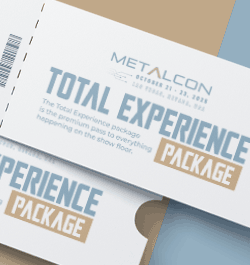






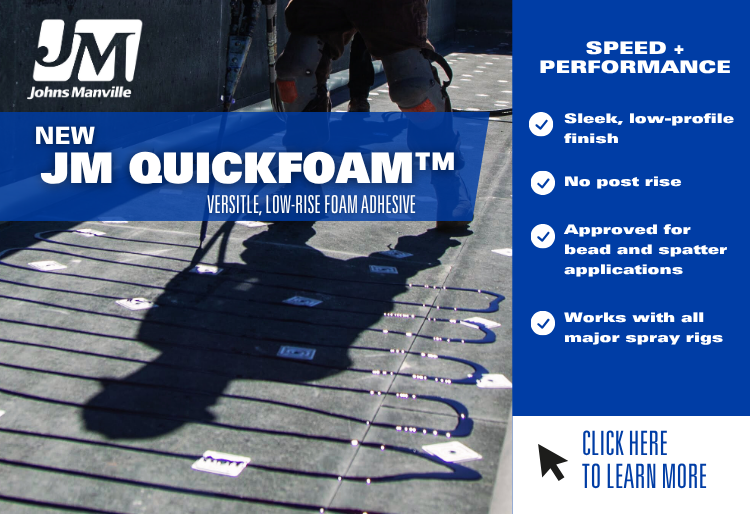




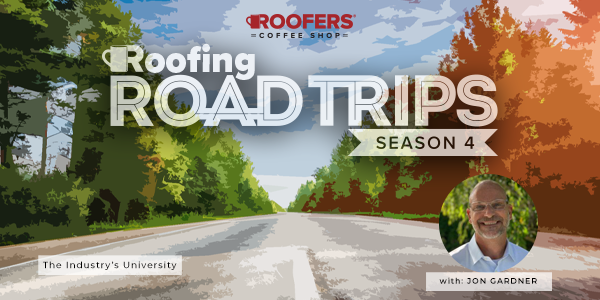

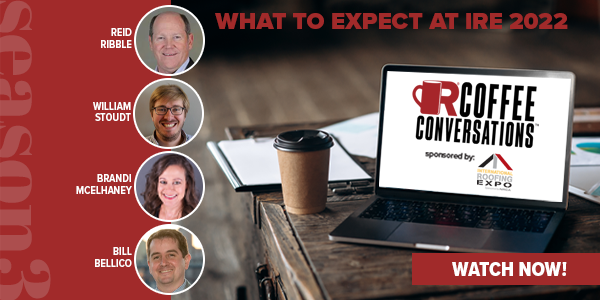



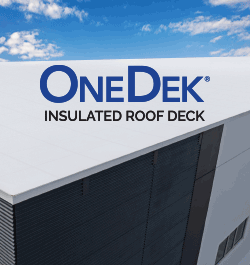


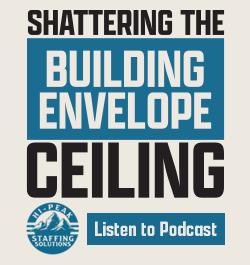
Comments
Leave a Reply
Have an account? Login to leave a comment!
Sign In